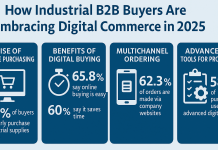Businesses and customers have benefited greatly from embedded finance.
In an interview, Salman Syed, the chief operating officer of Fidel API summarized the seismic changes brought on by the growth of embedded finance: Debit cards were formerly only available from banks, but today, a wide range of businesses are able to do so.
He noted the developments connected to embedded finance: “It’s early innings.”
With the growth of available finance, financial data is, of course, becoming more readily available. This enables developers to build experiences that make use of real-time insights, such as designing loyalty and rewards programs that are made available at the point of sale.
Syed gave the example of expense management platforms, where the benefit to business users is the software’s capacity to assist such businesses in managing basic financial procedures.
The problems are apparent: Most finance and HR departments don’t discover corporate spending until it’s already happened. Quicker budgeting and expenditure management equates to merely upgrading current procedures, or, to paraphrase Henry Ford, “grabbing onto faster horses rather than embracing the vehicle.”
Better transaction-level visibility, according to him, ends up “filling a real demand” and laying the groundwork for future developments.
He pointed out that organizations may create in-the-moment experiences at the point of sale by using APIs from providers, such as Fidel API, to track client spending on registered cards. Additionally, they enable customers to attach their own cards, doing away with the requirement for cost management services to create their own cards.
Syed noted, “We’re witnessing those transactions, as they happen, in real-time.












